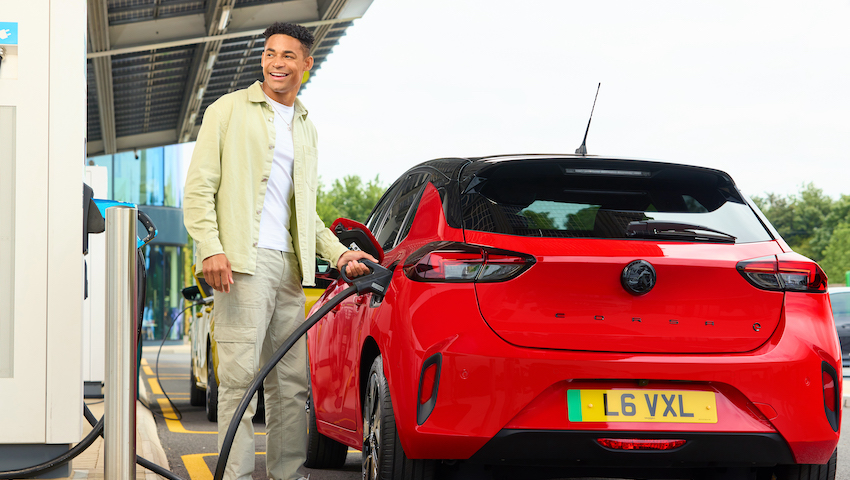Vauxhall and Debrett’s release EV etiquette guide
Vauxhall has launched a new Etiquette Guide for electric vehicle drivers in partnership with leading British etiquette expert, Debrett’s.
The Guide to Electric Vehicle Etiquette offers drivers tips on how to navigate key areas of public electric vehicle (EV) life. The release of the guide comes as Vauxhall research* reveals that almost 90% of UK drivers think a lack of guidance on how to use public EV chargers puts drivers off making the switch over to electrification, whilst 77% told Vauxhall they are unclear on etiquette relating to EV ownership.
Compiled with the help of electric vehicle drivers and industry experts, the tips cover everything from how to queue orderly at a public charging hub, negotiating charging time with fellow motorists and how to be a good EV house guest.
Vauxhall’s research highlighted differences between EV and petrol/diesel owners when it comes to their interactions with other motorists. While 55% of plug-in hybrid or electric vehicle drivers said they would let another motorist who needed less charge go ahead of them in the queue at a public charge point, only 15% of petrol and diesel drivers said they would do the same at a petrol station.
50% of drivers said they would be uncomfortable asking another driver to vacate a space at a petrol station or EV charger if they needed to refill or charge. To avoid a potentially awkward encounter, Vauxhall’s Guide to Electric Vehicle Etiquette provides advice on how to diplomatically approach other drivers whose vehicle is almost fully charged.
The brand has also created timing cards for drivers to put in their vehicles to keep other motorists informed of how long they’ll be charging for.
Vauxhall’s research highlighted the number of EV charging bays being misused by petrol and diesel drivers, with almost half (46%) of electric and plug-in hybrid vehicle drivers reporting that they have been unable to park in a charging bay because a non-electric vehicle was taking up the space. 40% of electric vehicle drivers have also found that charging bays are too small to accommodate their electric vehicle.
When it comes to home charging, almost two-thirds (64%) of drivers said that if a visitor asked to charge an EV at their home, they would expect them to cover the electricity costs. To be a courteous EV guest, Vauxhall’s guide recommends politely asking your host, taking into account electricity tariffs to charge at the cheapest time, and perhaps leaving a parting gift. Alternatively, drivers can rent charging facilities from private residents nearby, through companies such as Vauxhall partner, JustPark.
Liz Wyse, Debrett’s, said: “As the electric vehicle revolution transforms our roads, our behaviour and etiquette must accommodate changes. It is clear that many drivers are uncertain about the etiquette relating to owning an EV. The new Guide to Electric Vehicle Etiquette aims to address these uncertainties, providing clear guidance on charging and parking protocols, as well as some recommendations about good etiquette that will contribute to a civilised and agreeable EV experience.”
Other areas of contention that Vauxhall’s Guide to Electric Vehicle Etiquette provides support on include how to queue orderly when waiting to use a public charge point, and being aware of any EV-dedicated signage in the area that may be there to guide you. 57% of those surveyed said there is an inadequate number of public signs on UK roads to help EV drivers find suitable charging points.
James Taylor, Managing Director, Vauxhall, said: “As part of our mission to electrify Britain and to become an electric-only brand from 2028, Vauxhall is committed to making owning an electric vehicle as easy as possible. With over three quarters of drivers unsure on electric vehicle etiquette, this very British guide is designed to answer any of the day-to-day questions that prospective EV owners might have.”
